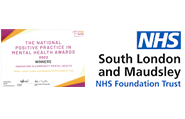Why get help early?
Mental health problems are becoming more widely recognised across the world, and the mental health of young people and young adults is a particular concern. In fact, most mental health problems begin during adolescence and early adulthood.

Youth is the stage at which most mental disorders, often detected for the first time later in life, begin - Patel, Flisher, Hetrick & McGorry [1]
Many people have their first contact with mental health services when problems become so distressing that they can’t cope any longer. However, most people are aware of something being wrong well before reaching a crisis point. We know that if people can feel encouraged to seek support as early as possible, then that help is much more likely to be effective.
What is an ‘At-Risk Mental State’?
Lots of people have distressing unusual experiences, which have started to get in the way of things like academic work, employment or socialising. This early period is called an 'At-Risk Mental State', and getting help at this point can prevent a person from going on to develop a more serious mental health problem.
Psychosis is a mental health problem where people often have distressing unusual experiences that stop them from living the lives they want.
Because we know that interventions received early are the most effective, support is now available for people who are experiencing the early signs of a serious mental health problem. This is particularly true in psychosis.
If you live in Lambeth, Southwark, Lewisham or Croydon then the OASIS service is available for you
Help is at hand!
In the UK, there are some specialist mental health teams who support people with an ‘At-Risk Mental State’.
The NHS-recommended treatment is talking therapy. This recommendation is based on scientific research on the effectiveness of different types of treatment. Psychological interventions like talking therapy can decrease the risk of developing a more serious mental health problem, and can improve well-being and quality of life.
Support can help people develop skills in understanding and overcoming their unusual experiences, so that they can focus on what they really want from life.
There is also support for family and friends, who sometimes have questions about how to best help their loved ones.
Visit our getting help page to find out more.







